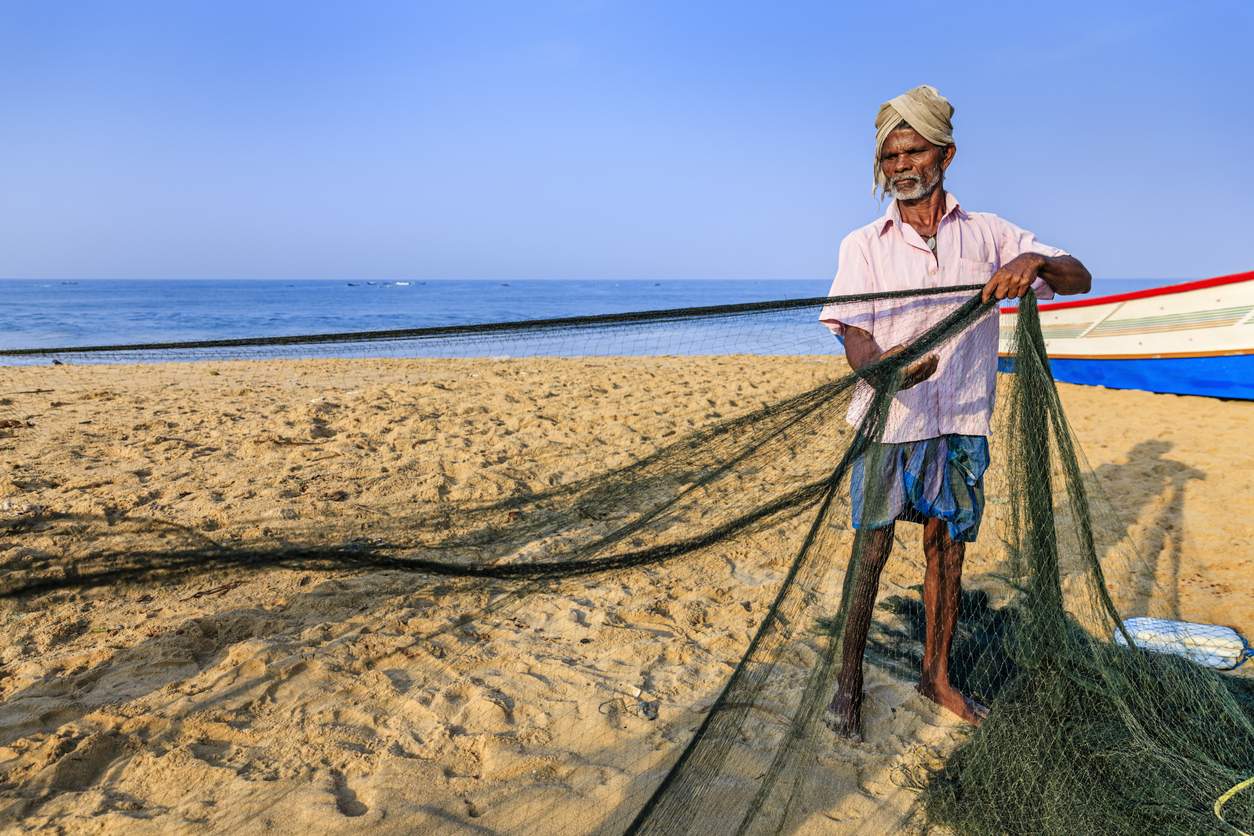
It's more than 21 days for fishers as ban on venturing into sea nears

Many in Tamil Nadu may of late have relished a meal with fish, shrimp or crab. But the people who brought the food to their plates miss the same enjoyment due to the coronavirus lockdown.
Unlike others, the fishing community not only has restrictions on work, but also the approaching fishing ban to worry about. As the lockdown is apparently set to end on April 14, the 61-day ban on fishing begins the very next day and continues until June 15.
“We have not ventured into the sea since the beginning of March. So, this year, we have seen a fishing ban for 91 days,” says M Ilango, chairperson of the National Fisherfolk Forum. He says the ban period was only 45 days until 2017, but had been increased to 61 days.
“Between October and December, cyclones affect fishing. So, we have been left to pin our hopes on July, August and September,” Ilango says.
Lack of savings adds to woes
Tamil Nadu has 13 coastal districts, all located along Bay of Bengal. The lockdown has especially affected fishers in these districts as the ban is imposed between April and June only along this coastline. Along the coast of Arabian Sea, the ban is between June and August.
Generally, fishers are left with no money to save after spending on diesel, maintenance of boat, paying wages to labourers, etc., says Ilango. “In this scenario, the state government has done nothing so far and expects the Centre to provide us with compensation.”
Need for organised sector
The lockdown has once again reminded the community on the importance of becoming an organised sector, says Narayani Subramanian, a researcher. The community not only include fishermen, but also women who sell the catch at markets, boat owners, labourers, ice suppliers and drivers. So the one-size-fits-all policy won’t work in this sector, she says.
If one goes deep south, the problems are different. For example, women too go to sea in Rameshwaram of Ramanathapuram district as many fishermen are addicted to alcohol, which, in turn, causes financial problems.
Women collect seaweeds — edible species of marine algae — that are around 12-20 feet deep. It needs to be removed in regular intervals. But the lockdown has affected this too, says Gayathri Usman, station head of Kadal Osai FM, a radio station dedicated to the fisher community.
Traditional practice lends a hand
But what does the community do for food during the lockdown. Interestingly, fishers follow a traditional practice that helps them in meeting their needs, says Usman. “There is no permission to fish using mechanised or motorised boats, but fishers can use boyas (a catamaran-like structure made of thermocol),” she says.
With boyas, they fish near the shore and share the catch with others in the area. The next day, another fisherman does the same, she adds. Fishers have demanded that the ban be stayed for 10 days, so that they get some elbow room.
‘Relax lockdown regulations’
The Kerala government has allowed fishers to use catamarans and small country boats. “Fishing too comes under agriculture. When the Tamil Nadu government could given relaxation to farmers, why can’t State extend it to fishers?” asks Johnson, a lawyer. “There is no ban on selling fish, but only fishing, which is ridiculous.”
Fishers wait for the compensation from the Centre as it would benefit them to a great extent. “We have been told that the Union Finance Ministry had allocated funds for compensation. If it is distributed soon, it will of great help, says Ilango.

